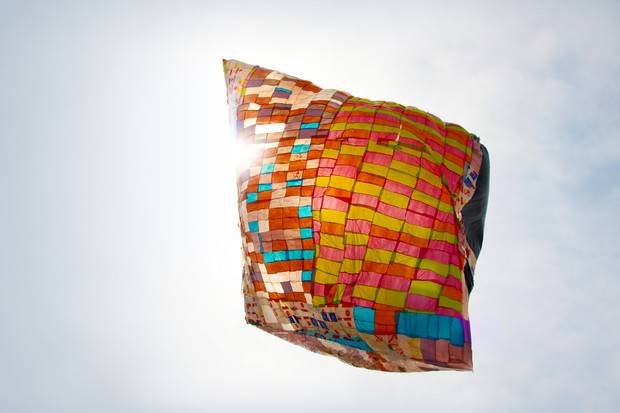The Ritual of the Übermensch: A day with Friedrich Nietzsche
The Übermensch, the theory of the eternal return, the inextricable crossroads between the Dionysian and the Apollonian, actually resemble chapters from this great philosopher’s everyday life.
Among the most important philosophers of the 19th century, Nietzsche stands out not just because of the originality of his thought, but also because of the mass diffusion his work has had, and which has been equaled by his tormented biography.
Raised in a religious environment (from Protestant father and grandfathers), Nietzsche first studies philology, and then, after teaching for a brief period, isolates himself to work on his theories, leaving behind academicism and virtually all his social relations.
Curtis Cate made an exhaustiveresearch of the life of this German genius, especially concerning the years he spent in his Sils-Maria’s home in Switzerland. Weakened by disease, the philosopher followed a work routine which, although admirable, few probably envy (not to mention that very few would even endure):
Cate writes:
With a Spartan rigour which never ceased to amaze his landlord-grocer, Nietzsche would get up every morning when the faintly dawning sky was still grey, and, after washing himself with cold water from the pitcher and china basin in his bedroom and drinking some warm milk, he would, when not felled by headaches and vomiting, work uninterruptedly until eleven in the morning. He then went for a brisk, two-hour walk through the nearby forest or along the edge of Lake Silvaplana (to the north-east) or of Lake Sils (to the south-west), stopping every now and then to jot down his latest thoughts in the notebook he always carried with him. Returning for a late luncheon at the Hôtel Alpenrose, Nietzsche, who detested promiscuity, avoided the midday crush of the table d’hôte in the large dining-room and ate a more or less ‘private’ lunch, usually consisting of a beefsteak and an ‘unbelievable’ quantity of fruit, which was, the hotel manager was persuaded, the chief cause of his frequent stomach upsets. After luncheon, usually dressed in a long and somewhat threadbare brown jacket, and armed as usual with notebook, pencil, and a large grey-green parasol to shade his eyes, he would stride off again on an even longer walk, which sometimes took him up the Fextal as far as its majestic glacier. Returning ‘home’ between four and five o’clock, he would immediately get back to work, sustaining himself on biscuits, peasant bread, honey (sent from Naumburg), fruit and pots of tea he brewed for himself in the little upstairs ‘dining-room’ next to his bedroom, until, worn out, he snuffed out the candle and went to bed around 11 p.m.
Related Articles
When ancient rituals became religion
The emergence of religions irreversibly changed the history of humanity. It’s therefore essential to ask when and how did ancient peoples’ rituals become organized systems of thought, each with their
Seven ancient maps of the Americas
A map is not the territory. —Alfred Korzybski Maps are never merely maps. They’re human projections, metaphors in which we find both the geographical and the imaginary. The cases of ghost islands
An artist crochets a perfect skeleton and internal organs
Shanell Papp is a skilled textile and crochet artist. She spent four long months crocheting a life-size skeleton in wool. She then filled it in with the organs of the human body in an act as patient
A musical tribute to maps
A sequence of sounds, rhythms, melodies and silences: music is a most primitive art, the most essential, and the most powerful of all languages. Its capacity is not limited to the (hardly trivial)
The enchantment of 17th-century optics
The sense of sight is perhaps one the imagination’s most prolific masters. That is why humankind has been fascinated and bewitched by optics and their possibilities for centuries. Like the heart, the
Would you found your own micro-nation? These eccentric examples show how easy it can be
Founding a country is, in some ways, a simple task. It is enough to manifest its existence and the motives for creating a new political entity. At least that is what has been demonstrated by the
Wondrous crossings: the galaxy caves of New Zealand
Often, the most extraordinary phenomena are “jealous of themselves” ––and they happen where the human eye cannot enjoy them. However, they can be discovered, and when we do find them we experience a
Think you have strange reading habits? Wait until you've seen how Mcluhan reads
We often forget or neglect to think about the infinite circumstances that are condensed in the acts that we consider habitual. Using a fork to eat, for example, or walking down the street and being
The sky is calling us, a love letter to the cosmos (video)
We once dreamt of open sails and Open seas We once dreamt of new frontiers and New lands Are we still a brave people? We must not forget that the very stars we see nowadays are the same stars and
The sister you always wanted (but made into a crystal chandelier)
Lucas Maassen always wanted to have a sister. And after 36 years he finally procured one, except, as strange as it may sound, in the shape of a chandelier. Maassen, a Dutch designer, asked the










